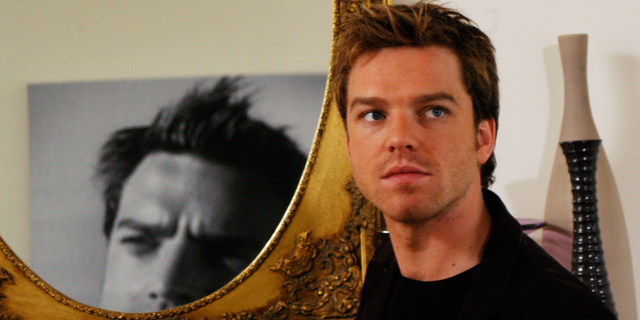
Rhys Thomas: Q&A
The actor, writer and director of Freddie Mercury: The Great Pretender on how popping to the shops for Bob Mortimer got him his first writing gig and why networking is overrated.
Published 23 April 2013.
What first inspired you to become a director?
I’ve always wanted to direct, but acting and writing seemed more fun and less stressful, so I stuck with that. Also, I had worked with lots of directors in the past who were better than I would ever be, so I never felt the urge to do it.
When it came to making this documentary, initially I was just going to produce and write it, but Christopher Bird and Jim Beach gave me the confidence and the chance to do so. I know certain people in the food chain wanted to get an experienced director in to do the job, but I had them killed.
How did you break into the industry?
I was very lucky. I was a huge fan of Reeves and Mortimer and called up to ask for audience tickets for Shooting Stars – I was still in 6th Form. They didn’t have any but I chanced it and asked, ‘Do you have any work experience?’ There was a pause. ‘Can you come in tomorrow?’ And that was it. Mad.
I plucked up the courage to give the tapes my comedy group at school had made to Bob Mortimer and Charlie Higson (then script editor of Shooting Stars), they were surprised to find them funny. On the strength of that material, I was asked to write and star in The Fast Show and script edit/perform on Shooting Stars. After that, I got my first sitcom commissioned and went on to do Star Stories, Nathan Barley, Swiss Toni and Sirens amongst others.
I had no connections to the industry and I think that’s what perhaps endeared me to the likes of Reeves/Mortimer and the Fast Show lot. Lots of runners around the BBC at that time had connections or relatives who had got them jobs and wanted to be directing/producing instantly. I, however, was more than happy to be getting Bob Mortimer’s 20 Benny Hedges from the newsagent or coffee with milk and two sugars for Paul Whitehouse from the BBC canteen. I couldn’t believe my luck. I never took it for granted. I still don’t.
"Any old sod can network, but without the rest, what have you got?"
How important is networking? Is raw talent enough?
Networking, in my case, has never worked, as I have never really networked. I wouldn’t know how. I think passion and raw talent is what you need for sure. Yes, you can get your face about, but that’s not enough. These days you can take your life/work in your own hands and make your own product to a certain extent, rather than network and or wait/hope for the best. Any old sod can network, but without the rest, what have you got
What qualities does a director need to succeed?
Your own vision and the ability to listen to your audience. I had 90 minutes or whatever to dazzle the hell out of them. I wanted to tell the story of Freddie Mercury – an extraordinary man with an extraordinary talent - in a short space of time. I didn’t want to waste a second. I wanted to make the viewers laugh, cry, punch the sky – the works. I didn’t want to leave them bored and searching for the remote so they could switch over to repeats of Cadfael on ITV 3. It’s always good to have that in the back of your mind – pacing. That sometimes means throwing out good stuff. That’s another thing - you have to be prepared not to be too precious.
As a director, which part of making Freddie Mercury: The Great Pretender did you find the most challenging, and how did you overcome it?
There have been numerous documentaries about Queen and Freddie Mercury – I had made one myself only a year before, so the key was having a new slant on the story and that was the challenge. I found using humour helped and not going down the linear route of a bog standard music documentary.
I wrote the structure as if it were a film, constructing scenes and sequences on paper and using footage to tell my version of the story. I didn’t want a voice over or captions. There were a lot of gaps at times but we found a way and I am glad I never gave in to convention, which would have been easy, but less rewarding.
"I never took it for granted. I still don’t."
What have you learnt about directing so far that you wish you’d known at the start?
It’s never ‘over’ when it’s over. There is always something else to do. The hardest thing was having to make version after version for various markets. Luckily I never got bored and I had so much fun that I hated it when it was all over. Now I can see why George Lucas wants to fiddle about with Star Wars every 20 years.
What single piece of advice would you give to someone trying to break into directing and get noticed?
Have confidence in what you have made/are making, enjoy it and have passion. And a brilliant editor who you can bond with because you are going to spend a lot of time together, trying things out, getting things right and wrong – it’s all part of the fun. Don’t listen to anyone unless they have something useful to say. Be brave enough to stand up for yourself and say ‘NO!’ if you have to. You may not always be right, but at least there is no one else to blame but yourself.
Rhys Thomas is nominated in the 2013 BAFTA TV Craft Awards Break-through Talent category for his direction on Freddie Mercury: The Great Pretender.
